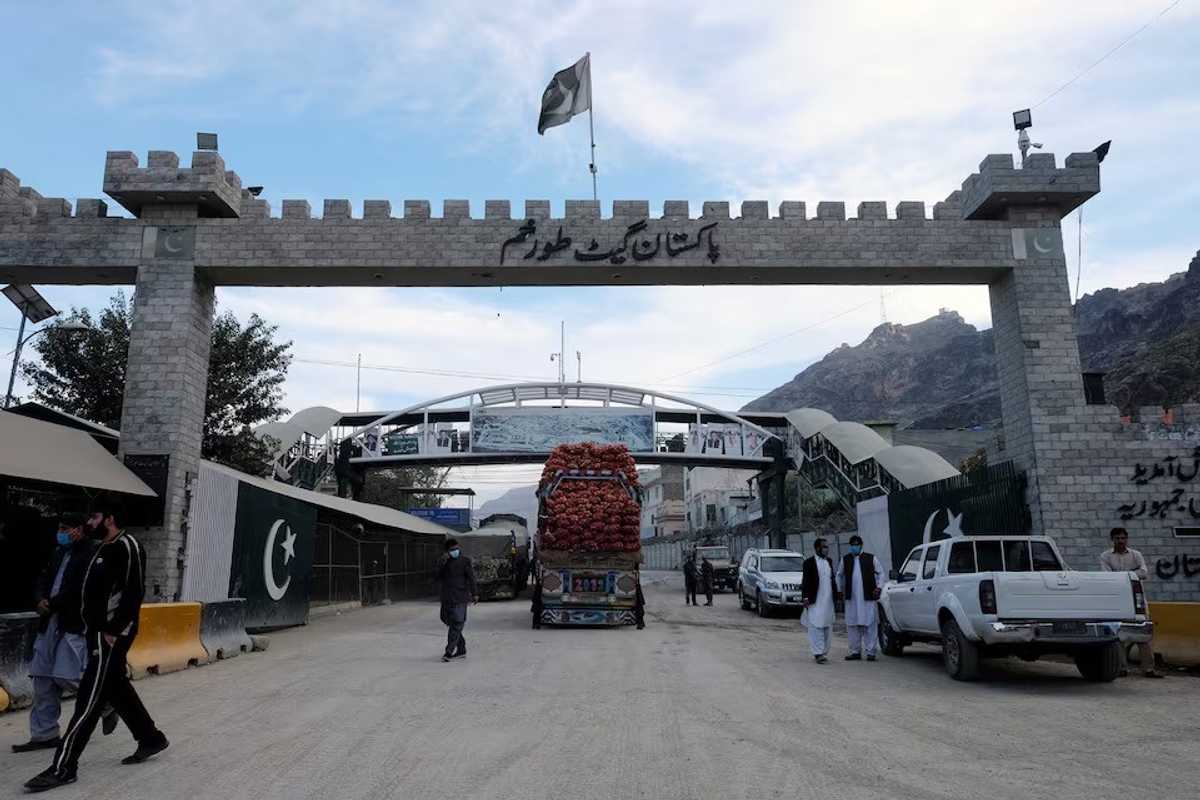Torkham border reopens as Pakistan, Afghanistan move to ease cross-border tensions
Khyber deputy commissioner said the border reopened to repatriate undocumented Afghans, with registration underway at the immigration center

Kamran Ali
Correspondent Nukta
Kamran Ali, a seasoned journalist from Khyber Pakhtunkhwa, Pakistan, has a decade of experience covering terrorism, human rights, politics, economy, climate change, culture, and sports. With an MS in Media Studies, he has worked across print, radio, TV, and digital media, producing investigative reports and co-hosting shows that highlight critical issues.

The Torkham border crossing between Pakistan and Afghanistan has reopened after a 20-day closure, following a ceasefire agreement aimed at defusing weeks of heightened tensions between the two neighboring countries.
Bilal Shahid, Deputy Commissioner of Khyber District, confirmed that the crossing has been reopened to facilitate the repatriation of undocumented Afghan nationals residing in Pakistan.
“The registration and entry process of Afghan refugees is underway at the immigration center, where officials are completing necessary formalities before allowing them to cross into Afghanistan,” he said.
He clarified, however, that the border will remain closed for trade and regular pedestrian movement until further notice.
Abidullah Uqab Farooqi, spokesperson for the Afghan Border Forces, also confirmed the reopening, adding that Afghan border guards welcomed returning nationals with garlands upon their arrival - a gesture aimed at easing recent hostilities.
Shahid Hussain, Chairman of the Pakistan-Afghanistan Central Asia Trade Promotion Committee and representative of the Sarhad Chamber of Commerce, said the recent standoff has disrupted trade not only between Pakistan and Afghanistan but across Central Asia, where Afghanistan serves as a critical transit route.
“Hundreds of trucks are stranded at border crossings including Torkham, Chaman, Kharlachi, and Angoor Adda,” Hussain said, warning that Pakistan has been losing over Rs1 billion daily, while Afghanistan’s losses are roughly double due to the spoilage of perishable goods and restricted access to its largest trading partner, Pakistan.
He cautioned that if Afghanistan fails to stabilize the situation, Pakistan could turn to alternative regional trade corridors - a move that would deal a severe blow to Afghanistan’s already fragile economy.
Tensions escalated after a series of explosions in Kabul on October 9 prompted Taliban attacks along Pakistan’s border regions. Islamabad retaliated with cross-border fire, resulting in casualties and property damage on both sides, before closing the main crossings on October 12.
Following the closure, Pakistan and the Afghan Taliban held multiple rounds of talks in Qatar and Turkey, leading to a ceasefire agreement and a pledge to maintain peace along the frontier.
The next round of negotiations is expected to take place in Istanbul on November 6, where both sides will finalize the implementation mechanism for the truce.







Comments
See what people are discussing